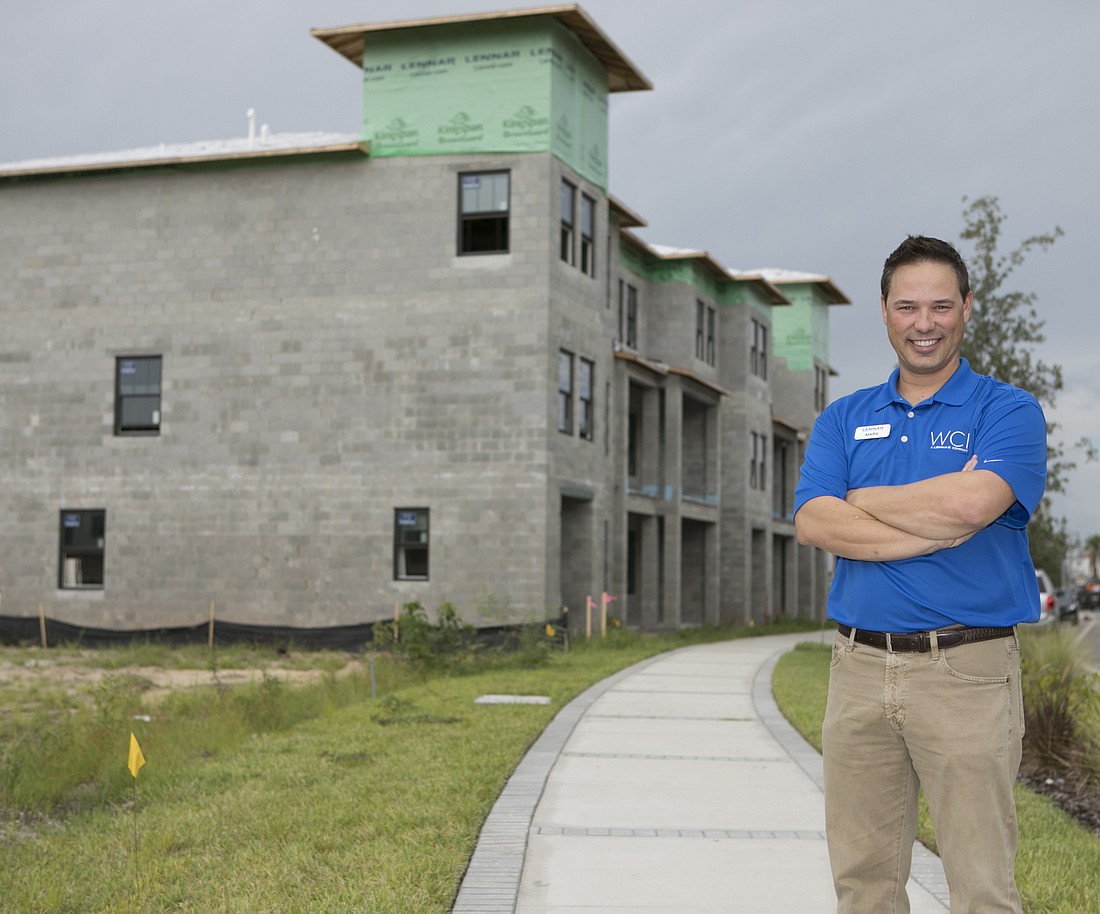- July 26, 2024
-
-
Loading

Loading

Mark Metheny graduated from Florida State with a degree in accounting and went to work for KPMG.
But in 2001 he seized an opportunity to join Lennar, a leading U.S. homebuilder with a strong presence on the west coast of Florida. He quickly outgrew the company’s accounting team and has been on a leadership track since 2004, when he became Lennar’s director of sales and marketing. Now 45, he heads up the company’s central Florida division, based in Tampa. Miami-based Lennar is the second-largest homebuilder in the country, according to the Builder magazine Top 100, behind D.R.Horton. Lennar had $12.65 billion in revenue in 2017.
Metheny recently spoke with the Business Observer about the state of the residential construction industry along the Gulf Coast, Lennar’s growth and other industry issues. Edited excerpts:
Q: In what areas of the west coast of Florida do you see the most potential for growth for Lennar?
A: Ruskin and south Hillsborough. A little over half our total activity comes from that area. But we see that moving toward Pasco County a little bit more as we run out of land opportunities in south Hillsborough. We see Pasco, probably in the next five years, overtaking Hillsborough in terms of new homebuilding, and certainly Manatee County is becoming an active market. Further south, Charlotte County is becoming active and we continue to do very well in Collier County and Lee County, in particular. Naples and Fort Myers have basically become one city so we continue to find new opportunities in that area.
Q: You’re approaching two decades in the homebuilding industry. How have homebuyers’ expectations changed during your career?
A: One of the things that's a benefit to being with Lennar is we have nationwide scope, so we get to see trends on the west coast, trends in the Northeast, that we can adapt here. We’ve seen big changes in the way buyers live, so we rolled out a product a few years ago called Next Gen, which offers almost a separate apartment within the home for either an aging single parent or a returning college student, or for a home office. It gives you an additional function for the home.
Q: How has Lennar addressed the construction industry labor shortage? What can be done to get more young workers interested in construction trade careers?
A: We're fortunate in that we have good scale and we’re an important client to most of our subcontractors and trade partners, but we have seen that as a bottleneck in terms of our ability to supply the demand — labor shortages and material shortages, as well. Over the past 10 to 20 years there has been such an emphasis on college as the next step to a career, but if you look at some of the numbers, you’ll find that trade schools are going to be a better return on investment than a lot of colleges are. Labor is a very big issue that as a state and as a country, we need to figure out.
Q: How can you sustain the company's growth surge?
A: Demand has continued to grow; it’s outpacing supply dramatically. The underlying fundamentals for the Tampa market and Florida in general have done very well for continued housing formation. Job growth is good and Tampa continues to see a lot of good, solid companies relocating here. We’re seeing existing companies adding jobs and that continues to fuel housing demand.
“Labor is a very big issue that as a state and as a country, we need to figure out.” Mark Metheny, Lennar’s central Florida division president
Q: Does that mean a real estate bubble on the horizon?
A: We’re still so far behind on the supply curve. There’s a tremendous amount of demand that builders aren’t able to keep up with. I think the bubble or downturn is going to be very market specific … we will see small pullbacks and blips but nothing similar to what we saw in 2006-07. Also, we’re not selling to investors like we were before, so there doesn’t appear to be any risk of the kind of “ghost inventory” that we saw back then.